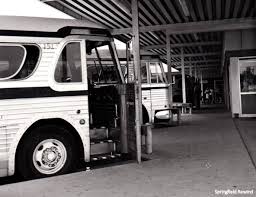“How it is, isn’t how it has to be, it is simply how it is right now. Your possibilities are as limitless as your dreams.” James Richardson
1985 – Pensacola, Florida: At midnight, 13-year-old Jimmy Wayne Barber sat alone in the bus station. Before leaving with her latest boyfriend, his mother had given him money and told him to buy a ticket to see his 14-year-old married sister, Patricia, in Gastonia, North Carolina. It wasn’t the first time his mother had abandoned him. The first time was 10 years earlier when he was only three.
Jimmy Wayne was raised in Kings Mountain, North Carolina. His father left home when he was a toddler. His mother had a fifth-grade education, a history of mental illness and a drug and alcohol abuse problem. She had been arrested multiple times for drug misdemeanors and shoplifting. When Jimmy Wayne was nine, she was committed to a North Carolina mental hospital. After wearing out their welcome with family members, Jimmy Wayne and Patricia were introduced to foster care for the first time.
Reconnecting with their mother only happened infrequently, and while they hated foster care, those short stays provided some stability in their chaotic lives. At 14, Jimmy Wayne stuffed his few possessions in a garbage bag and ran away from a foster care home. After being hungry and homeless for a few days he went back.
Two years later, back on the street again, Jimmy Wayne was mowing lawns for food money when he showed up at Bea and Russell Costner’s house in Gastonia. He asked if he could cut their grass for something to eat. Russell, 79, and Bea, 76, took Jimmy Wayne up on his offer.
Touched by his story, they invited Jimmy Wayne to live with them, and their love changed his life. They bought him his first guitar from the Salvation Army and Jimmy Wayne became the lead singer in a high school rock band. He dreamed of going to Nashville, recording an album, and donating the proceeds to children in foster homes.
When Russell died a few months after Jimmy Wayne arrived, he expected Bea to kick him out, but she didn’t. Although Bea disapproved of Jimmy Wayne’s kind of music, she supported his dream. When the band played local gigs, Bea was always on the front row reading her Bible and praying.
In 1992, 20-year-old Jimmy Wayne enrolled at Gaston Community College in nearby Dallas, North Carolina. He continued to live at home with Bea while working part-time in a textile mill to help support them. He earned a degree in criminal justice and got a job as a corrections officer at the Gaston Correctional Facility. When Bea died in 1997, Jimmy Wayne moved to Nashville to chase his country music dream.
He auditioned as a musician at the Opryland theme park and was turned down, but he caught the attention of a music executive with the Opryland Publishing Company. Jimmy Wayne signed a contract for $250 a week to write 18 songs per year while he focused on his music career. Two years later, he landed a recording deal with Dream Works Music, and his song Love You This Much climbed to No. 1 on the country music charts.
On New Year’s Day 2010, Jimmy Wayne set out to walk from the Monroe Harding Foster Care Home in Nashville, Tennessee, to Phoenix, Arizona. His purpose was to raise money for foster care children. He took a small duffle bag, a sleeping bag, and no money. He lived like a foster care child, sleeping in homes, and accepting food only if offered.
The walk covered 1,700 miles and raised hundreds of thousands of dollars. The proceeds were used to help change the foster care maximum age, the age at which group homes evict foster children, from age 18 to 21 in Tennessee. Later, Jimmy Wayne lobbied the North Carolina and Ohio legislatures to pass a similar law.
In 2013, his movie, Paper Angels, became an instant Christmas holiday classic. Jimmy Wayne’s memoir, Walk to Beautiful, is a New York Times and Amazon bestseller. In 2016, he received the prestigious Points of Light Award from President George W. Bush.
Today, the 53-year-old singer, songwriter, and author still lives in Nashville, where he performs and works tirelessly on behalf of at-risk foster youth. He travels globally sharing his story of homelessness. He has appeared on the Grand Ole Opry more than 250 times singing and promoting foster needs. “Ms. Bea taught me that your circumstances don’t define you.” Jimmy Wayne recalls. “If you really want to do something, you can find a way.”

Very heart touching story. Thanks for sharing.